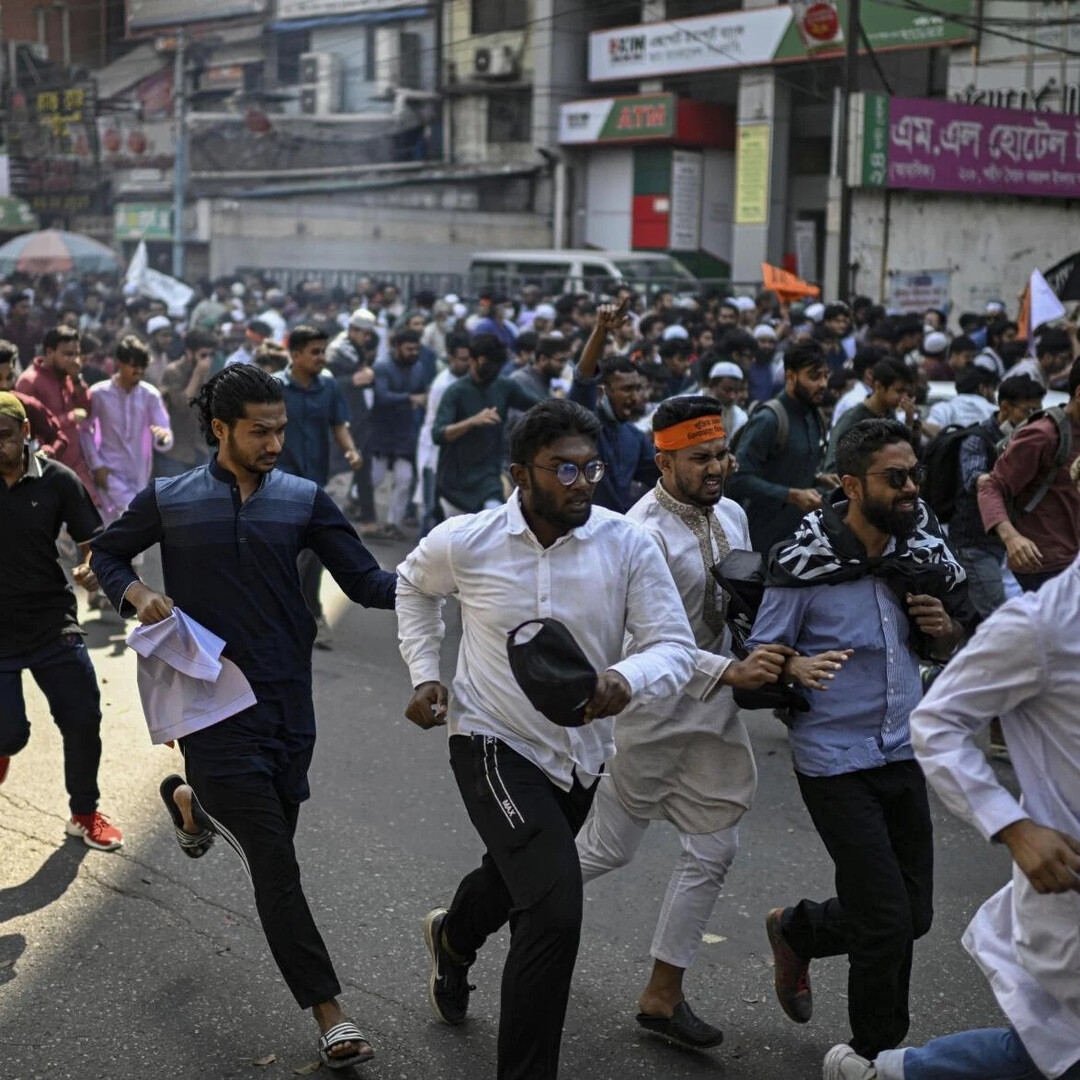
DHAKA, Bangladesh – Violent clashes erupted in Dhaka on Friday as Bangladeshi police used batons and stun grenades to disperse thousands of members of the banned Islamist group Hizbut Tahrir, who were marching near the city's main Baitul Mokarram Mosque. The demonstrators were calling for the establishment of a global Islamic caliphate and the implementation of Sharia law in Bangladesh.
The confrontation, which occurred after weekly prayers, resulted in numerous injuries and several arrests, according to police reports. Masud Alam, a deputy commissioner of the Dhaka Metropolitan Police, stated that the police intervened after the marchers broke through established barricades. Witnesses at the scene reported a chaotic scene, with scores of individuals sustaining injuries amidst the police crackdown.
Between 3,000 and 5,000 protesters participated in the procession, chanting slogans such as “Freedom has one path, Khilafat, Khilafat,” referring to the caliphate, and “Naraye Taqbir, Allahu akbar,” meaning “Cry, God is the greatest.” The group had actively promoted the event, dubbed “March for Khilafat,” through social media campaigns, leaflet distribution, and poster displays across Dhaka in the days leading up to the protest.
Hizbut Tahrir, an international Islamist political organization, advocates for the unification of all Muslim-majority countries into a single Islamic state governed by a caliph elected by Muslims. The group believes this is a religious obligation and seeks to implement Sharia law, a system of Islamic jurisprudence, in governance.
The organization was banned in Bangladesh in 2009 by the government of then-Prime Minister Sheikh Hasina under the country’s anti-terrorism laws, citing it as a “threat to public security.” The ban followed concerns over the group's radical ideology and its potential to incite violence and destabilize the nation.
This recent demonstration occurs amidst a period of political transition in Bangladesh. Sheikh Hasina, who had served as Prime Minister for 15 years, was forced to step down last August following widespread protests sparked by grievances over a quota system for government jobs. An interim government, led by Nobel Peace laureate Muhammad Yunus, was subsequently established to oversee a transition. Hasina has been in exile in India since her ouster.
Bangladesh, a predominantly Muslim nation of approximately 170 million people, operates under a secular legal framework derived from British common law. However, various Islamist groups and political parties advocate for the implementation of Sharia law, reflecting ongoing debates about the role of religion in the country's governance. Bangladesh has also faced challenges from extremist groups in the past, underscoring the government's concern over potential threats to national security.
The recent clashes highlight the persistent tensions between secular governance and Islamist movements in Bangladesh, and the ongoing struggle to balance freedom of expression with national security concerns. The government's response to Hizbut Tahrir's demonstration underscores its commitment to enforcing the ban and preventing the group from gaining traction.
[Copyright (c) Global Economic Times. All Rights Reserved.]






























